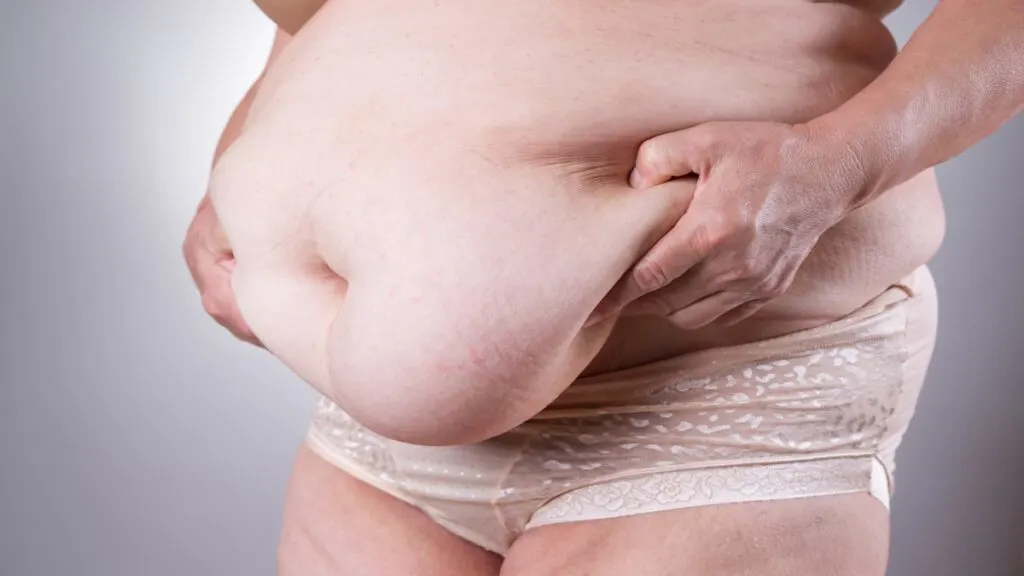I’m sure that you don’t need me to tell you that a BMI of 53 is classed as obese. So, after outlining some of the dangers of a 53 BMI, I’ll explain how people with a body mass index of 53 commonly lose weight.
But before you try to slim down, I recommend consulting your doctor because obese people need to be careful that they don’t put too much strain on their bodies when exercising, especially after a long period of inactivity.
Related:
- What is a good body mass index for women?
- BMI of 50
- BMI of 51
- BMI of 52
- BMI of 54
- BMI of 55
- BMI of 56
- BMI of 57
- BMI of 58
- BMI of 59
Why is having a BMI of 53 bad for your health?

Having a BMI of 53 is bad for your health because it means that you’re severely obese and, therefore, are at an increased risk of becoming chronically ill with conditions like heart disease, diabetes, and even some cancers.
Of course, your BMI, even if it’s high, doesn’t guarantee that you’ll get sick; it just increases your risk, often dramatically.
Indeed, body mass index is a screening tool; it doesn’t measure your body fat percentage, which is why it can often fail to detect abdominal obesity (you can be of a normal weight and still have excess fat).
Of course, when a person’s body mass index becomes really high, then the chance of them having dangerously high levels of body fat naturally increases. At a 53 BMI, abdominal obesity and the accompanying visceral fat are almost a guarantee.
What hope does a BMI 53 person have?

While it’s easy to despair at your current situation, you should take comfort in the fact that 1) there are lots of people like you, and 2) with the right help, you can dramatically reduce your 53 BMI.
People with a body mass index of well over 53 have managed to transform their bodies, meaning that you have every chance of weight loss success as well.
While it might seem challenging initially to cut your calories and move your body more, these new endeavors will quickly turn into habits if you’re consistent.
After running your plans by your doctor, they might refer you to a nutritionist who will then be able to give you specific help that will set you up for weight loss success and lasting change.
While there is plenty of good information online, it can be easy to fall for fads and look for quick fixes, which is something that professional dietary help can sidestep.
How can you reduce a BMI of 53?

Weight loss comes down to being in an energy deficit, which means cutting your calories and moving your body. This is a simple and almost crude way of looking at things, but that’s the basics.
What matters most for an obese individual is settling on a calorie deficit that a) is large enough to trigger substantial weight loss to get their body weight out of the obesity danger zone and 2) that is not so aggressive that it quickly becomes unsustainable.
Calorie deficits of 30-40% are not uncommon for obese people who have a BMI of 53 because this kind of calorie restriction can produce fast results and bring your unhealthy weight down ASAP.
Eating whole foods will help you to feel more satiated while giving your body better nourishment.
Whatever course of action your doctor and nutritionist recommend, focus on short-term goals so that you don’t become demotivated at the prospect of shifting a significant amount of body weight.
In conclusion
Although having a BMI of 53 certainly isn’t doing your health any favors, things could be worse. At a 53 BMI, you can probably still move okay, meaning that weight loss and better health are within your reach.
Changing your body, even when you know it’s necessary, can feel overwhelming. So don’t feel that you have to go to the gym every day. Walking around the block or in the park is a great place to begin, and it can make a big difference if you currently lead a very sedentary lifestyle.

